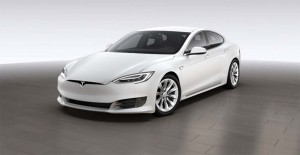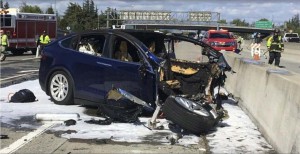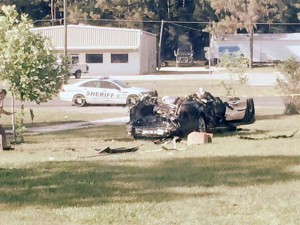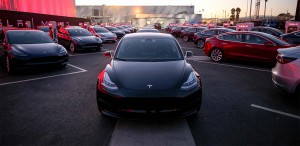Tesla has announced that it is recalling 123,000 Model S sedans, almost half of all the vehicles it has produced since going into business.
The move, signaled by a letter sent to customers Thursday, was triggered by problems with steering bolts that could cause the failure of the power steering system on vehicles built prior to April 2016.
This is at least the third instance in which Tesla had to recall a sizable share of its products due to a safety-related problem. Service actions have become more commonplace in recent years as manufacturers have come under pressure to quickly address safety problems. But the new Tesla move is significant both for its size and due to the fact that the automaker has been experiencing a series of setbacks, including the loss of roughly a third of its value in the stock market in recent weeks.
“There have been no injuries or accidents due to this component, despite accumulating more than a billion miles of driving,” the California-based automaker said in an e-mail issued to customers. A formal recall notice will be sent out by mail, as well, as required under federal law.
Tesla explained that power steering bolts can experience excessive corrosion which can subsequently cause them to loosen or even break off. In such a case, there could be a reduction, and possibly even a loss of power steering – though the company said a driver would still be able to steer manually.
“This primarily makes the car harder to drive at low speeds and for parallel parking, but does not materially affect control at high speed, where only small steering wheel force is needed,” it explained in the e-mail.
All told, 123,000 Model S sedans are involved in the recall, nearly half of Tesla’s total production to date. It previously recalled about 90,000 of the sedans because of a faulty rear seatbelt and last year called back 50,000 Model S sedans and Model X SUVs because of a problem with their parking brakes.
(Tesla stock in freefall. Click Here for more on that story.)
The company has also come under scrutiny as a result of several crashes, two fatal. That includes one in 2016 in which a former Navy SEAL was killed, federal safety regulators ultimately putting at least some of the blame on the car’s Autopilot system. Another incident potentially involving the semi-autonomous technology occurred earlier this year when a Tesla slammed into a firetruck on a freeway near Los Angeles.
And the National Transportation Safety Board is now investigating a crash in which a driver was killed in a Model X earlier this month in Mountain View, California.
“We have never seen this level of damage to a Model X in any other crash,” Tesla said in a blog post following the crash, but it also raised questions about whether that was due, at least in part, to the failure of a highway device called an attenuator that was supposed to reduce possible crash forces.
Nonetheless, news of the crash and subsequent investigation created serious concerns among Tesla shareholders already worked up about a series of other problems, including the long delays in ramping up production of the critical Model 3 battery-sedan, as well as reports that the automaker has been facing problems with the quality of many of the parts it uses in its first mainstream model.
(Tesla struggling with major quality issues. Click Here for the story.)
The Wall Street Journal also reported this week that Tesla burned through $3.4 billion of a shrinking pot of cash last year, increasing investors’ worries that it will either run out of cash or be forced to stage another equity offer this coming year.
“Reality is setting in,” long-time Wall Street automotive analyst Joe Phillippi, now head of AutoTrends Consulting, told TheDetroitBureau.com.
The company’s stock has tumbled by approximately a third since reaching a 52-week high $389.61. It did rebound slightly on Thursday to close at $266.13, but has been falling in after hours trading since the new recall was announced.
(Tesla shareholders approve multi-billion dollar package for Musk. Click Here for details.)




